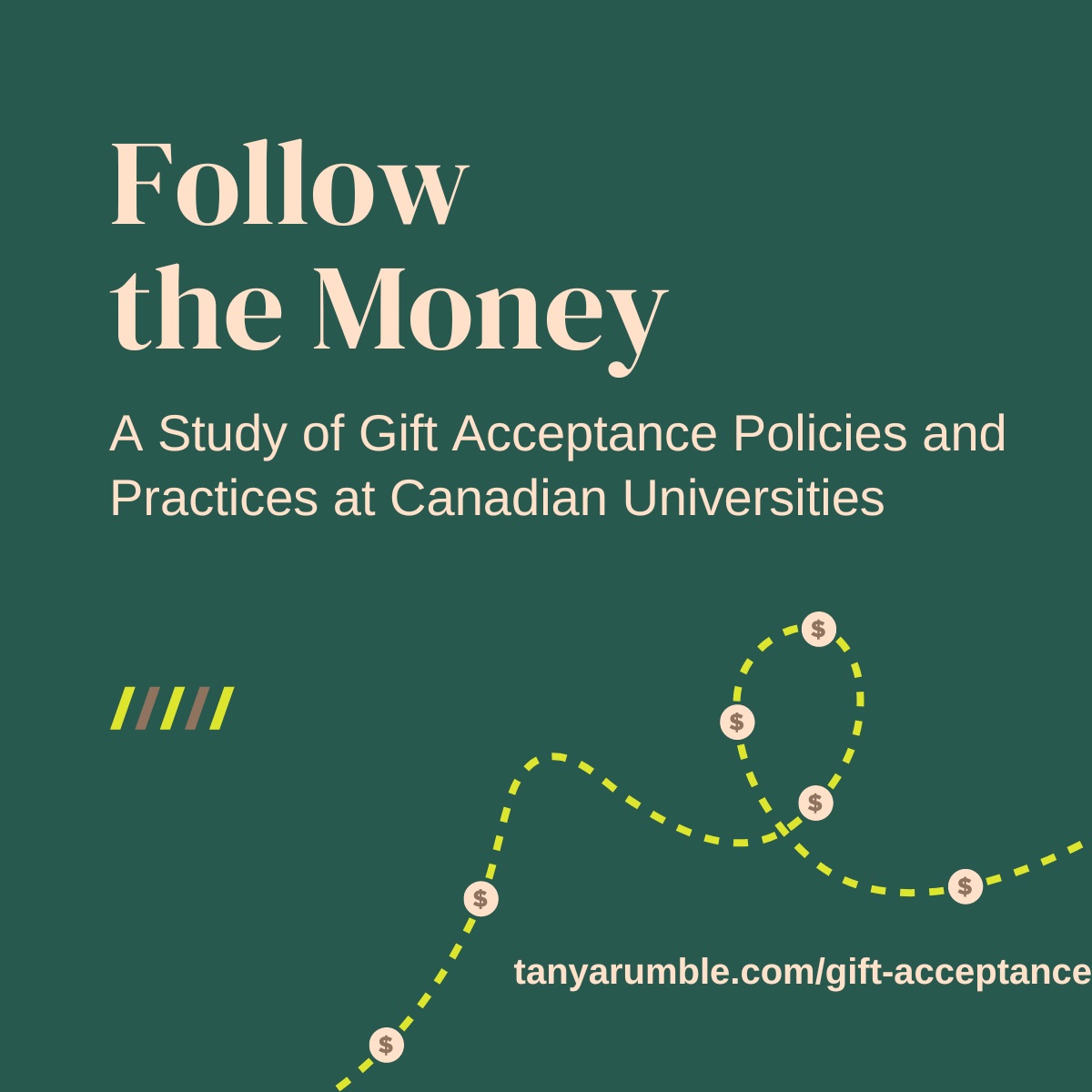- Home
- About Us
- The Team / Contact Us
- Books and Resources
- Privacy Policy
- Nonprofit Employer of Choice Award

 This research project was completed as part of the Master of Philanthropy and Nonprofit Leadership program at Carleton University. Authors Tanya Rumble, Bill Mintram and Ellen Doty worked together as part of a collaborative research team.
This research project was completed as part of the Master of Philanthropy and Nonprofit Leadership program at Carleton University. Authors Tanya Rumble, Bill Mintram and Ellen Doty worked together as part of a collaborative research team.
Research Question
How adequately do existing gift acceptance policies account for the nuanced ethical, reconciliation; and equity, diversity and inclusion (EDI) considerations that many public medical-doctoral universities are faced with when working with donors or potential donors?
The Context
What is a gift?
In order to talk about gift acceptance, we must first understand how a gift is defined. From the perspective of the Canada Revenue Agency (CRA), a gift must be given voluntarily, must include a transfer of property, and the donor cannot select a specific individual as the beneficiary for their funds or receive an advantage from making the philanthropic gift in order to receive a charitable tax receipt (CRA, 2016). For the purposes of this project, we have focused on philanthropic donations, though most post-secondaries also receive support through event sponsorship, government grants, sponsored research, and other means.
What is a gift acceptance policy?
A gift acceptance policy is intended to guide decisions about the acceptability of gifts and to outline the types of gifts that an organization will and will not accept. It can also help manage the expectations of donors, and serve as guidance for board and staff members who find themselves on the asking or receiving end of contributions.
Why is examining gift policies and practices important?
Multi-million-dollar gifts have the capacity to have immense impact for the beneficiaries including students, researchers and communities at large, though, that impact can be negative and may create harm for marginalized and structurally disadvantaged communities if great care isn’t taken to understand:
Review the full findings and recommendations here.